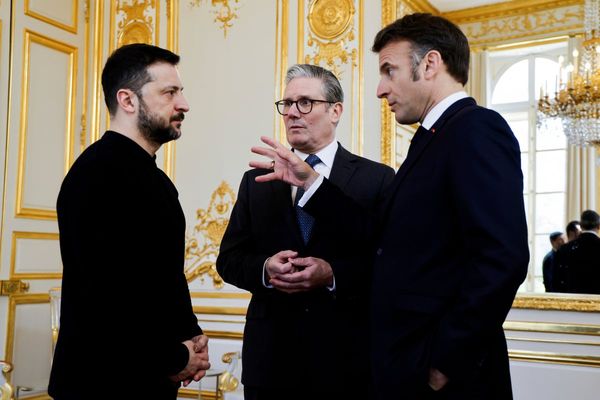NASCAR officials should be worried.
Very worried.
If they’re not, they are asleep at the wheel and will someday be lapped by Formula 1 in this country.
If you don’t believe me, consider that Miami Dolphins billionaire owner Stephen Ross — whose subsidiary company, South Florida Motorsports, funded Sunday’s much-ballyhooed Miami Grand Prix — is poised to make as much money in ticket sales for Miami’s inaugural F1 event as he makes during an entire season on Dolphins home games. In fact, business insiders say an economic impact of Super Bowl-like proportions is being created this weekend with an estimated 300,000 fans, celebrities, tourists and corporate executives converging on South Florida to drink, party and watch sleek Mercedes and Ferraris buzz around the 3.4-mile track near Hard Rock Stadium at speeds of more than 200 mph.
I’m not saying that the Miami Grand Prix will get higher ratings than NASCAR’s Throwback Weekend at Darlington on Sunday when the two racing leagues go head-to-head on network TV (NASCAR was on Fox Sports 1; Formula 1 was on ABC), but that day could be coming more quickly than NASCAR ever thought possible.
The rising stature of F1 in America can be directly attributed to the wildly popular Netflix Series: Formula 1: Drive to Survive — a show that has been described as a “soap-operatic docuseries” that gives viewers a behind-the-scenes look at F1 drivers, teams, cars and races.
Quite frankly, F1 has become internationally cool while NASCAR, although it’s evolving and trying mightily to change its image, is still considered by many to be the good ol’ boy sport of the South.
The recent F1 race in Austin drew a record 400,000 fans, almost 70% of whom were first-time attendees. Meanwhile, the Miami Grand Prix’s suite and pre-sale tickets were sold out in less than a day with the cheapest ticket going for $600 and the most expensive ones garnering $30,000 on the secondary market.
The Miami Grand Prix has become such a mega-moneymaker that is has transcended sports and is now being covered by business publications. According to the Sports Business Journal, SeatGeek — a popular online site for buying and selling tickets — is reporting that the Miami Grand Prix is the most in-demand auto race it has ever tracked, with an average resale price of $2,414 per ticket as of last week.
If NASCAR’s Daytona 500 is “The Great American Race” then the Miami Grand Prix is “The Great American Phenomenon.”
According to another business website, CNBC, Miami’s top hotels are charging more than $100,0000 a night for their top suites. Chefs are offering special dinners for $3,000 a plate, and night clubs are bringing in top DJs with tables going for up to $100,000 a night.
“This is going to be the biggest week in Miami history,” said Jeff Zalaznick, managing partner of Major Food Group, which sold out its dinner on Miami Beach at $3,000 per person. “We’ve never seen demand like this. It’s going to be a very hedonistic experience.”
The thing is, F1 is not only luring in the rich jet-setters and beautiful people, it’s capturing the attention of average sports fans, too. Case in point: Two of my best friends in Orlando have become avid F1 fans because of Netflix.
Pat Lynch, an iconic rock and roll deejay at WJRR in Orlando, might be the biggest sports fan I know. This guy watches every sport you can imagine on TV, and has always been a huge NASCAR fan. But when I put him on the spot a couple of days ago and asked if he is a bigger fan of NASCAR or F1, his response was telling.
“I’ve got to be honest, I’m leaning toward F1,” Lynch responded. “The Netflix series pushed me over the top. I was just sort of a casual F1 fan before, but now I know the names of the drivers, the teams and what goes into all this. It’s intriguing; it really is.”
Marc Daniels, the longtime radio voice of UCF, tells a similar story.
“My wife and I have become massive fans,” Daniels told me the other day during our radio show. “During the pandemic, my wife and I flipped on Drive to Survive and got absolutely hooked. Now, we’re huge fans. We both have our favorite team, our favorite driver, I’ve bought her F1 merchandise and now we’re looking to take a trip to Europe and to do it around being able to go to an F1 race. We were looking to go to Miami this weekend, but the tickets we were looking at were like $3,000 apiece. I was like, ‘Honey, I love you, but we ain’t doin’ that!”
It should come as no surprise that NASCAR recently unveiled its own Netflix docuseries — Race: Bubba Wallace — about Wallace’s journey as the sport’s only Black driver during the racially charged 2020-21 seasons.
Just consider this the beginning of NASCAR’s own drive to survive as the sport puts the pedal to the metal, races into the future and tries to block F1′s master plan of becoming the No. 1 option in satisfying America’s need for speed.







